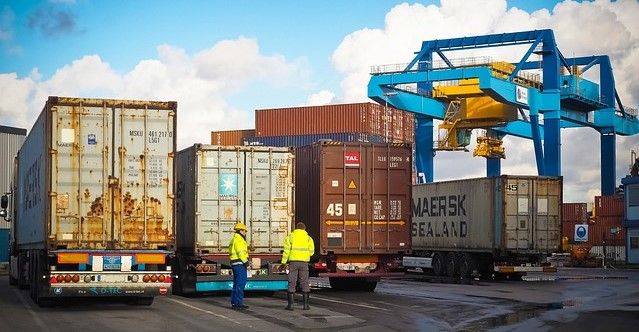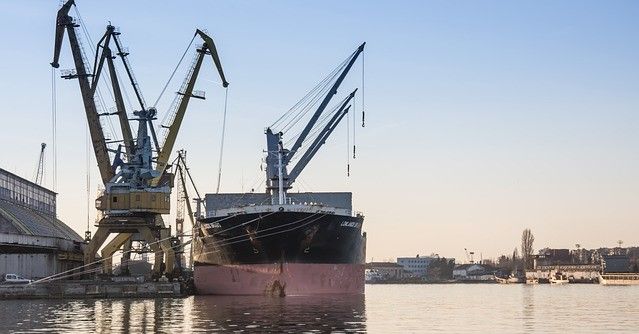The ongoing conflict in Ukraine has posed significant challenges for manufacturers in the country, particularly in terms of logistics and the sourcing and supply of raw materials.
Here are some examples of how companies have adapted to the evolving situation and uncertainty of production on the edge of a battlefield.
Logistics Challenges
Due to the ongoing conflict, transportation routes have been disrupted, making it difficult for manufacturers to move goods in and out of Ukraine. In addition, the cost of transportation has increased due to the need for additional security measures. To cope with these challenges, some manufacturers have invested in their own transportation infrastructure.

For example, a Ukrainian steelmaker, Metinvest, had to reroute its shipments to avoid areas affected by the war. The company has also had to use alternative transportation routes and methods, such as shipping products via ports in Turkey and Bulgaria.
Other companies, meanwhile, have had difficulty obtaining permits to transport goods through conflict zones.
Raw Material Sourcing and Supply
Many manufacturers in Ukraine rely on imported raw materials, which can be difficult to source during times of conflict. In addition, the conflict has led to a devaluation of the Ukrainian currency, making imported raw materials more expensive. To cope with these challenges, some manufacturers have switched to locally sourced raw materials where possible, while others have sought out alternative suppliers in other countries.

The Ukrainian chemical industry has been particularly affected by the conflict, as it relies heavily on imports of feedstocks such as natural gas and crude oil.
To cope with the challenges posed by the conflict, some chemical manufacturers in Ukraine have implemented price hedging strategies to protect themselves against fluctuations in feedstock prices.
Others have had to find alternative sources or replacement materials. For example, the Ukrainian ceramic tile maker, Kerameya, had to switch from using natural gas to using propane to fire its kilns due to the disruption of gas supplies from Russia. Similarly, a Ukrainian chemical company, Dniproazot, had to import ammonia from other countries when its main supplier, a Russian company, stopped shipments due to the conflict.
Impact on Production
The war has also had an impact on the production of Ukrainian manufacturers. For example, a Ukrainian agricultural equipment maker, Rostselmash-Ukraine, had to temporarily shut down production at its factory in eastern Ukraine due to the conflict. Similarly, a Ukrainian metal producer, Azovstal, had to reduce its output due to a shortage of raw materials. While agricultural equipment manufacturer Rostselmash, which has a factory in Ukraine, has had to rely on its Russian factories to supply parts due to disruptions in the supply chain caused by the war. This has led to longer lead times and higher transportation costs.

Government Support
To help Ukrainian manufacturers cope with the challenges of the war, the Ukrainian government has provided various forms of support. For example, the government has established a program to help companies find alternative sources of raw materials and has provided financial assistance to companies that have had to relocate their production facilities. In addition, the government has implemented measures to improve infrastructure and transportation networks to help companies transport goods more efficiently.
Overall, manufacturers in Ukraine have faced significant challenges due to the ongoing conflict, particularly in terms of logistics, labour, and raw material supply. However, many companies have been able to adapt and implement strategies to cope with these challenges.
All over the world, people are celebrating the fortitude of the Ukrainian defenders as they fight against their larger neighbours. Yet it is also a story of the resilience of the country’s manufacturing sector, the depth of character of its business leaders, the will to carry on among its raw material suppliers, and the ‘never say die’ attitude of its logistics teams.
War is a dreadful thing, but it is also a great determiner of how human will can overcome great challenges. Even if it means running a supply chain through a war zone.
Photo credit: Andreas Lischka from Pixabay, Michael Gaida, Christo Anestev, & Pixabay on Pexels